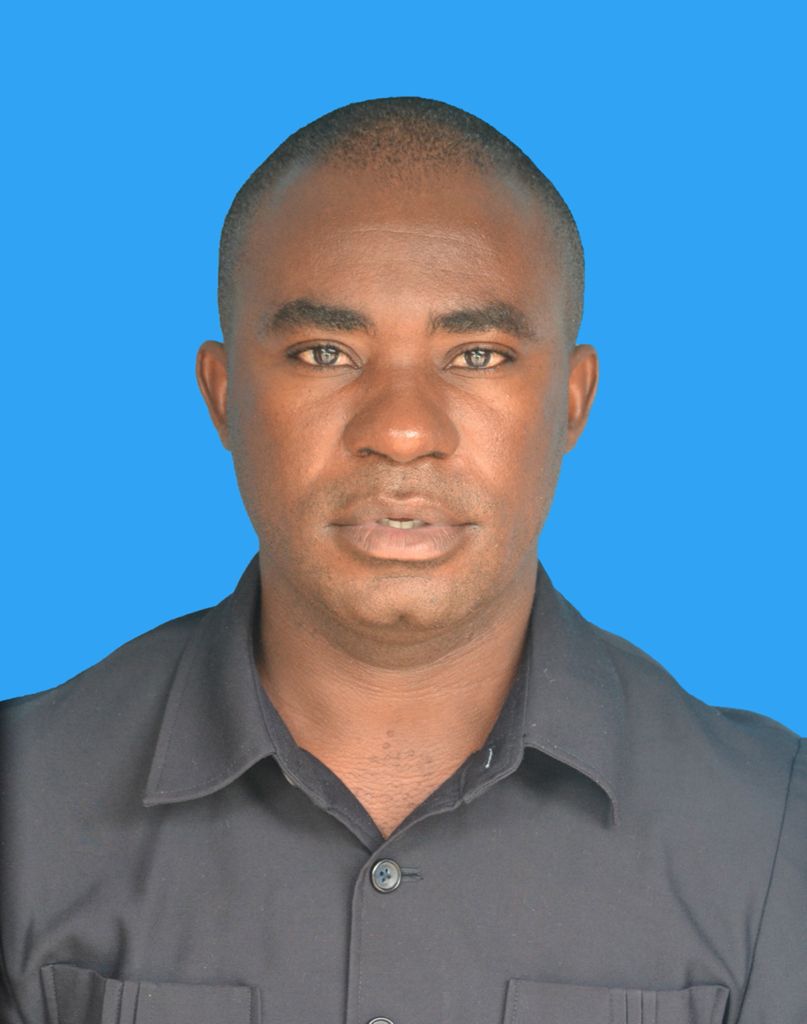Search for Staff
- Home
- Contact Details

MJEGE KINYOTA
Senior Lecturer, Dar Es Salaam University College Of Education
Education:
Ph.D (Comparative Education), Beijing Normal University, P.R.C (2019)
Teaching:
- Science, Technology, Engineering and Mathematics (STEM) education
- Curriculum and instruction
- Instructional design in STEM
- Research methods in education
Research:
- Teaching and learning in STEM
- Teacher professional learning
- Social justice issues in STEM
- Informal learning in STEM.
Projects:
Integrating Science Technology Engineering and Mathematics (STEM) in Early Childhood Education (ECE) in Tanzania: A focus on teachers’ competences – (2020-2021)
Sponsored by Dar es salaam University College of Education (DUCE) Research fund
Publications:
- Alduais, A., Muthanna, A., Nyenyembe, F. W., Chatambalala, J., Taye., M. T., Haque, M. S., Kinyota, M., & Kavenuke, P. S. (2022). The (national) doctoral dissertations assessment in China: An interpretive phenomenological analysis. International Journal of Doctoral Studies, 17, 115-140. https://doi.org/10.28945/4938
- Nitas, S. I., Kayombo, J. J., Kinyota, M. & Misiaszek, G. W. (In Press). Southern epistemologies for disrupting Northern Global Citizenship (Education) models: Ecopedagogical analysis and reinvention. In E. Bosio & Y. Waghid (Eds.), Global Citixenship Education in the Global South: Educators Perceptions and Practices
- Kinyota, M. & Rwimo, B. S. (2022). Developing Student Teachers’ Conceptions of the Nature of Science: An Assessment of a Pre-service Science Teacher Programme in Tanzania, African Journal of Research in Mathematics, Science and Technology, DOI: 10.1080/18117295.2022.204178
- Rukondo, N. & Kinyota, M. (2021). Influence of Femininity and Masculinity Traits on Participation and Perfomance in Science, Technology, Engineering and Mathematics of Undergraduate Students in Tanzania. Papers in Education and Development, 39 (1)
- Kinyota, M. (2021). A Portrait of the Gender Gap in STEM: A Focus on Identity Formation Among Final-year Undergraduate Students in Tanzania. Journal of Education, Humanities and Sciences, 10 (3), 1–18.
- Kyaruzi, F., Kinyota, M., & Rukondo, N. (2021). Validation of Student Attitudes toward STEM (S-STEM) Survey in Secondary Schools in Tanzania. Journal of Education, Humanities and Sciences, 10 (5), 40–58.
- Kavenuke, P.S., Kayombo, J., & Kinyota, M. (2021). Are they Stress-Free? Examining Stress among Primary School Teachers in Tanzania. Center for Educational Policy Journal, doi: 10.26529/cepsj.1058
- Kinyota, M., & Kavenuke, P. S.(2020). Are Pre-service Teachers Prepared to Teach? Investigating their Locus of Control, Self-efficacy and Attitude towards the Teaching Profession and Teaching Subjects. Papers in Education and Development, 38 (2), 29-54.
- Kinyota, M. (2020). Implementing ecopedagogical in highly centralised curricula contexts: A critical analysis of an environmental education course taught at one Tanzanian university. International Studies in Sociology of Education, https://doi.org/10.1080/09620214.2020.1854824
- Kinyota, M. (2020). The Status of and challenges facing secondary science teaching in Tanzania: A focus on inquiry-based science teaching and the nature of science. International Journal of Science Education, https://doi.org/10.1080/09500693.2020.1813348
- Kinyota, M. (2020). Reinvigorating Inquiry-Based Instruction in Science Classrooms in Tanzanian: Lessons from South Africa and the United States. Journal of Education, Humanities and Sciences, 9(1), 52-71.
- Kavenuke, P.S., Kinyota, M., & Kayombo, J.J. (2020). The Critical Thinking Skills of Prospective Teachers: Investigating their Systematicity, Self-confidence and Scepticism. Thinking Skills and Creativity, 37, https://doi.org/10.1016/j.tsc.2020.100677.
- Kinyota, M. (2019). The role of teachers’ instructional moves on students’ problem-solving skills: A discourse analysis of mathematics lessons in the USA and Tanzania. Papers in Education and Development, 37(2), 48-69.
- Kinyota, M., & Kavenuke, P.S., Mwakabenga, R.J. (2019). Promoting Teacher Professional Learing in Tanzanian Schools: Lessons from Chinese School-Based Professional Learning Communities. Journal of Education, Humanities and Sciences, 8 (1), 47-63
- Kavenuke, P.S., & Kinyota, M. (2018). Does going abroad benefit my country? Views of highly skilled personnel from Sub-Saharan Africa on brain drain-brain circulation. Mkwawa Journal of Education and Development, 2, 1-19.
- Kinyota, M., & Kavenuke, P.S. (2018). Whose name are in science textbooks? Justifying the need for critical pedagogy in Tanzania science classrooms. Journal of Education, Humanities and Sciences, 7 (1), 31-44
- Kinyota, M., & Kavenuke, P.S. (In Press). Examining Teacher Trainees’ Attitude towards Teaching Profession and Teaching Subjects in Tanzania. Huria Journal, 26 (2).
-
Kavenuke, P., & Kinyota, M. (2023). Gender Inequalities in Higher Education in Tanzania: Investigating theInfluence of Parents’ Socio-Economic Status. Paper in Education and Development, 41(2), 39-57.
-
Kinyota, M. (2023). Reconciling Teachers’ Views and Practices with Early Graders’ Ability to Engage in Scientific Inquiry. Science Education International, 34(4), 274-282. https://doi.org/10.33828/sei.v34.i4.3
-
Kinyota, M. (2023). Promoting Functional Scientific Literacy in Tanzania: A Critique of Current Basic Education Policy. UTAFITI Journal of African Perspectives, 18(2), 194-210.
-
Kinyota, M. (2023). The effects of role models on undergraduate students’ performance, sense of belongingness, self-efficacy, and persistence in STEM. Papers in Education and Development, 41(1), 66-84.
-
Kinyota, M., & Kavenuke, P. S. (2024). Exploring Consistency and Diversity in Research Designs: A Case of One University in Tanzania. Africa Education Review. https://doi.org/10.1080/18146627.2024.2313621
-
Shuma, J.R., Anangisye, W.A.L. and Kinyota, M. (2024), "Opportunities in promoting teacher ethics in Tanzania’s public primary schools through quality school-based professional development programmes", Quality Assurance in Education. https://doi.org/10.1108/QAE-02-2024-0039

